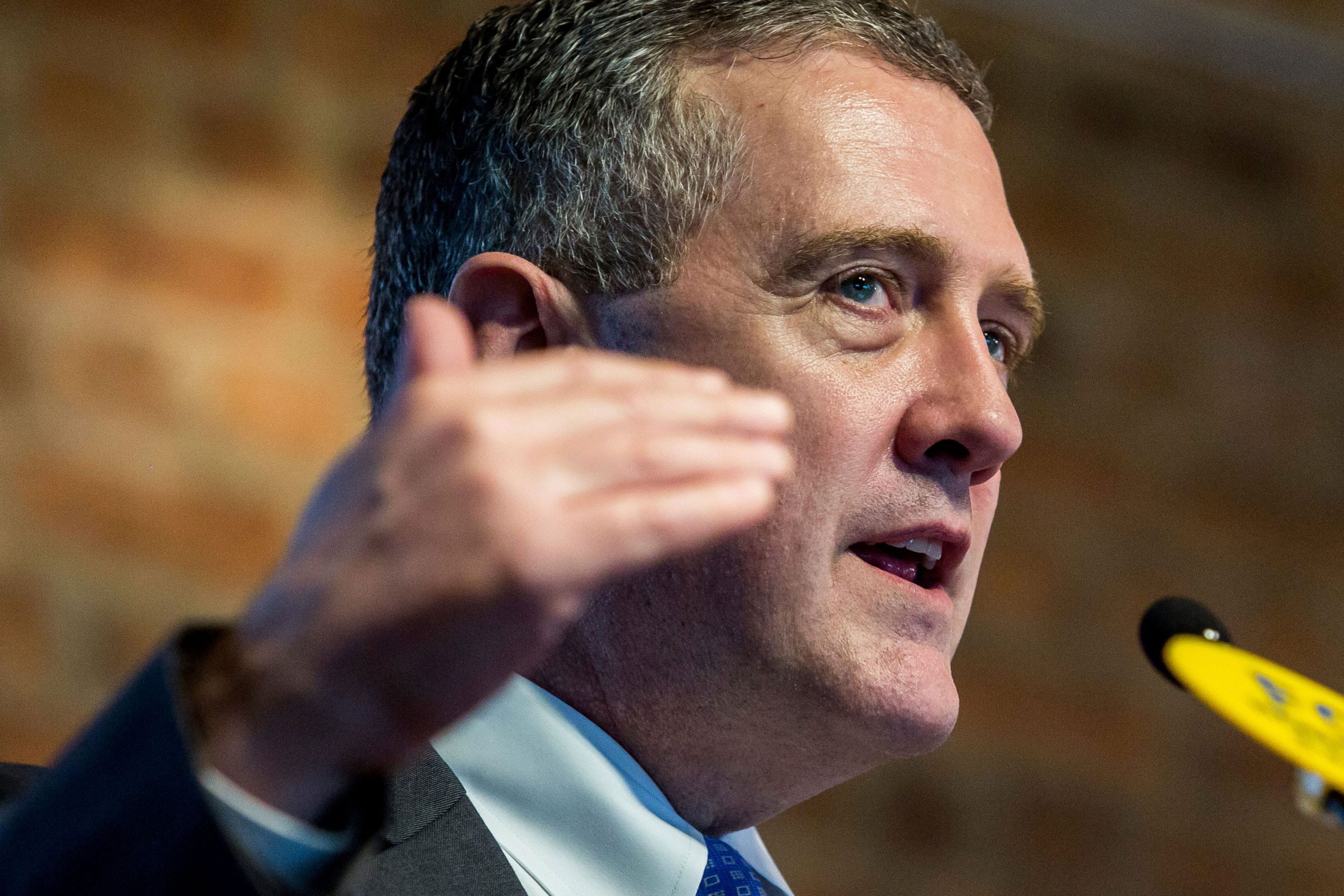
St. Louis Federal Reserve President James Bullard said Friday the coronavirus outbreak would have to reach levels of the ordinary flu before he would consider cutting interest rates.
Markets are anticipating the Fed will cut rates four times this year amid a scare that the virus would cause a sharp slowdown in global growth. The coronavirus has not been classified as a pandemic and has seen far fewer deaths than the flu but its mortality rate is much higher.
Bullard said the COVID-19 spread in China appears to be stabilizing. While he acknowledged the damage the virus already has done to economic growth expectations, he said current Fed policy is “in a good position” as officials examine the situation.
“Further policy rate cuts are a possibility if a global pandemic actually develops with health effects approaching the scale of ordinary influenza, but this is not the baseline case at this time,” he said in a statement accompanying a speech for delivery in Arkansas.
The comments come amid a stock market meltdown that continued into Friday. Major averages have lost more than 10% this week in what has been the quickest correction in market history.
Bullard said the sell-off has been driven by a “flight to safety” that has pulled down interest rates, “likely benefiting the U.S. economy.”
Indeed, government bond yields continue to hit record lows Friday, with the benchmark 10-year Treasury note dipping to 1.176% and the 30-year bond around 1.7%.
The policymaking Federal Open Market Committee cut its own benchmark rate three times last year, down to a range targeted at 1.5%-1.75%. Markets expect at least one rate cut at the March meeting.
“The FOMC executed a marked turnaround in U.S. monetary policy during 2019 that was designed in part to insure the economy against possible negative shocks to growth,” Bullard said. “This has put the FOMC in a good position in early 2020 as we closely monitor the evolving coronavirus impact on the global economy.”
He added that the lag effect of rate moves likely will continue to help the U.S. and pointed out that the three cuts was a bigger monetary boost than the market has appreciated as the 2-year Treasury saw a slide of 165 basis points, compared with the actual 75 basis point cut the Fed instituted.
The most recent decline in yields is actually “a bullish factor for U.S. economic growth,” Bullard said.
Also Friday, former Federal Reserve Governor Kevin Warsh told CNBC he expects the Fed and other central banks around the world to act soon in response to the outbreak.


 Signal2forex.com - Best Forex robots and signals
Signal2forex.com - Best Forex robots and signals




